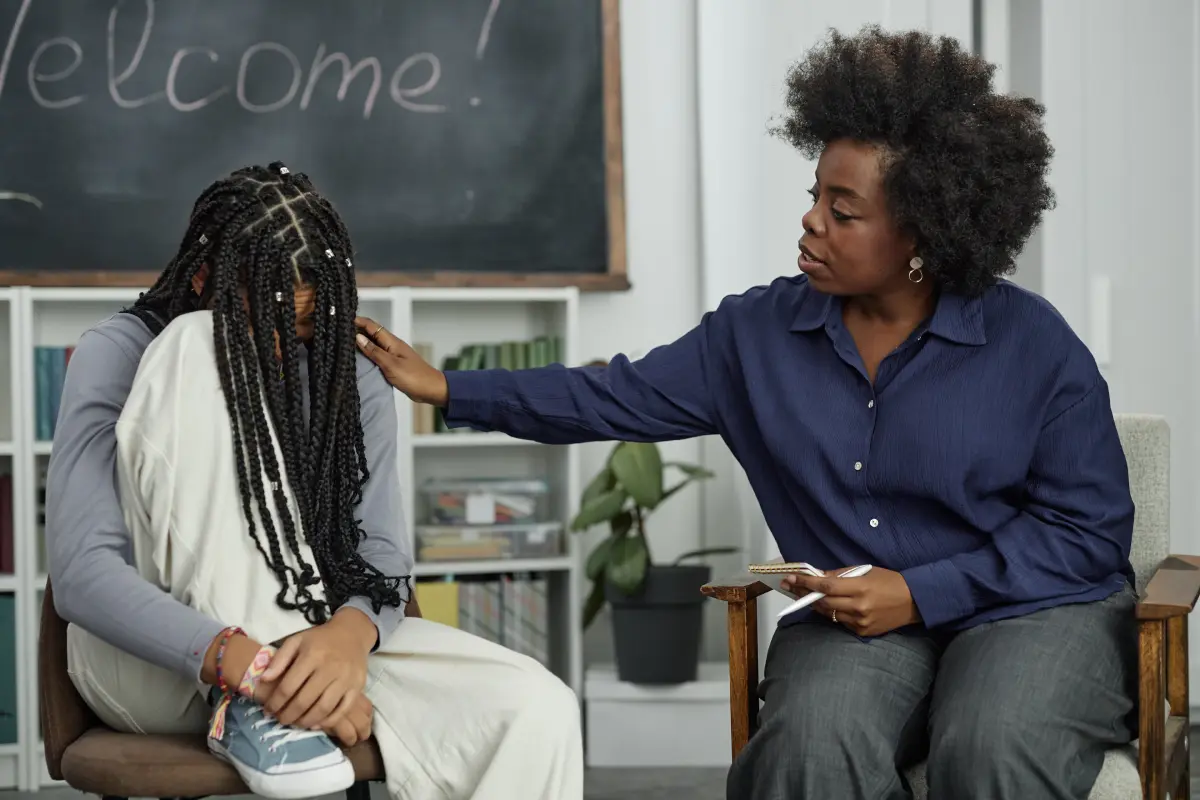
As artificial intelligence (AI) becomes more powerful, it’s changing the way we live and work. Machines can now write emails, solve math problems, and even help doctors find diseases. Some jobs are already being done faster—and sometimes better—by AI. So, where does that leave humans, especially those of us who work with young people?
Here’s the truth: no matter how smart AI gets, it can’t replace the human heart or provide embodied connection. That’s why human-centered skills like coaching will always matter—especially when it comes to helping tweens, teens, and emerging adults grow, thrive, and reach their potential.
Coaching is more than giving advice. It’s about listening deeply, asking thoughtful questions, and helping young people figure out who they are, what they want, and how to get there. Research in human development, behavioral science, and social science all agree—humans need a sense of mattering and belonging in strong relationships and positive social support to be well and thrive.
During the teen years, the brain is going through big changes. According to neuroscience, the prefrontal cortex—the part of the brain responsible for planning, decision-making, and self-control—is still developing until the mid-20s. That means teens need guidance from adults with their best interests in mind as they learn to manage intense emotions, build healthy habits, and set goals. AI can’t build a visceral sense of trust or co-regulate but skilled youth coaches can.
In behavioral science, we know that motivation grows when people feel seen, heard, and supported by others in their social world. Youth who feel like someone believes in them are more likely to stay in school, get jobs, and make healthy choices. A coach leads with that belief and creates a safe space for that belief to grow. AI can offer tips, but it can’t offer the empathy and compassion that grows through sharing lived experiences. Young people need to be understood, not just analyzed.
Social science also tells us that purpose, identity, and belonging are key to well-being. These are things young people explore during adolescence and early adulthood. Identity is our sense of self as we relate to others in our social world. Belonging is a sense that we are connected with people in our environment. A coach helps young people to reflect on these things by facilitating deep conversations and becoming more attuned through exploration—something a machine could never fully do. Human coaches adapt to body language, tone, and mood. They know when to push and when to pause.
That’s why even in an AI-powered future, we need more trained youth coaches—not fewer. Educators, social workers, counselors, and youth-serving professionals already have the heart for this work. By adding coaching skills to your work, you can expand your reach and empower the next generation in broader ways. Youth coaching combines science-backed techniques with the human touch that young people need.
The world is changing fast, and our youth need support more than ever. Let’s prepare them not just to survive—but to thrive.
If you’re passionate about helping young people unlock their full potential, consider becoming a certified youth coach. Youth Coaching Institute offers high-quality training grounded in adolescent development and coaching science.
Register today on our Courses page and be the trusted adult who makes a life-changing difference.